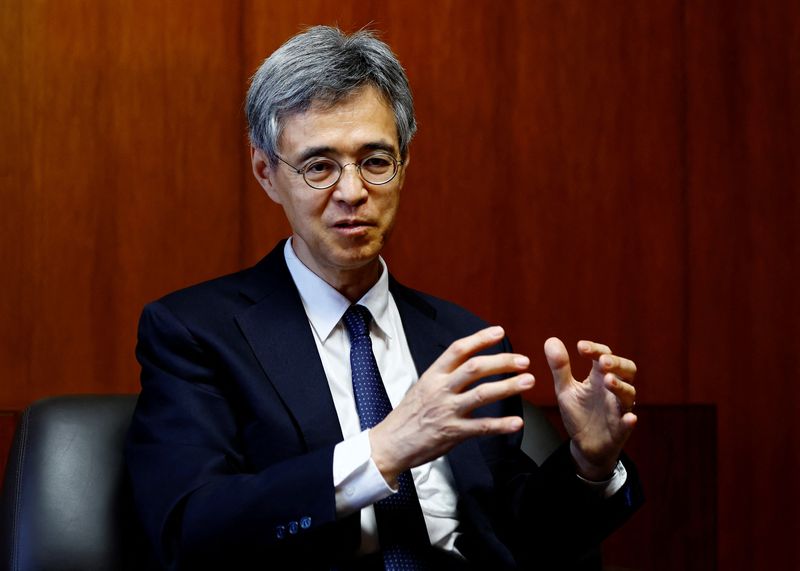By Takahiko Wada and Makiko Yamazaki
KOFU/TOKYO (Reuters) -Bank of Japan Deputy Governor Ryozo Himino on Wednesday reiterated the central bank's stance that it would continue to raise interest rates if inflation stayed on course, while also closely monitoring financial market conditions.
His comments echo those from Governor Kazuo Ueda last week, who suggested that recent market volatility would not derail its long-term rate hike plans.
The central bank would, however, first need to monitor financial markets with the "utmost vigilance" as they remain unstable, Himino said in a press conference after he met business leaders in the central Japanese city of Kofu.
The BOJ will examine the impact of recent market volatility, the interest rate hike in July and the course of the U.S. economy on its economic and price outlook, he said.
"There is no change to our stance that we would adjust monetary easing if economic activity and prices are likely to meet projections," he said.
The BOJ surprised markets in July by raising interest rates to a 15-year high and signalling its readiness to hike borrowing costs further on growing prospects that inflation would durably hit its 2% target.
The BOJ's hawkish tone led the battered yen to soar and Tokyo stocks to plunge in their biggest single-day rout since 1987's Black Monday sell-off though markets have since stabilised.
Ueda was summoned in parliament last week to explain the July decision. Speaking to lawmakers, he reaffirmed his resolve to raise interest rates if inflation stayed on course to sustainably hit the BOJ's 2% target.
A poll by Reuters showed a majority of economists expect the BOJ to hike rates again this year, but more see the chance of it happening in December rather than October.
Prior to the press conference, Himino in a speech to business leaders expressed confidence in the outlook for the Japanese economy.
"I believe that the baseline scenario for the future remains that growth and inflation will develop in line with the BOJ's outlook," he said, according to the text posted on the central bank's website.
He pointed out that the yen's recent rebound may alleviate the pain of rising import costs and profit squeeze many small and medium-sized firms currently face.
While the stronger yen could pressure profits at export-oriented companies, there is not a wide gap between current yen rates and the rates assumed in their business plans, he said.

Stock price volatility "need not affect business sentiment too much" as Japanese firms have transformed themselves and formed competitive edges, he added.
Private consumption, previously a weak spot of the economy, will be underpinned by wage growth and moderating inflation, although the BOJ needs to be mindful of risks that inflation will not moderate and continue to push down real wages, he said.